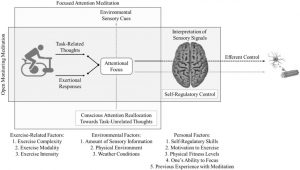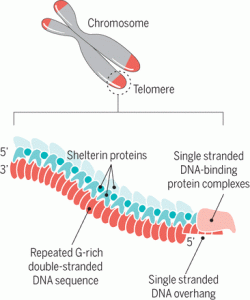Reduce the Risk of Major Depression Relapse with Mindfulness
By John M. de Castro, Ph.D.
“a growing body of research is pointing to an intervention that appears to help prevent relapse by altering thought patterns without side effects: mindfulness-based cognitive therapy, or MBCT.” – Stacy Lu
Clinically diagnosed depression is the most common mental illness, affecting over 6% of the population. Major depression can be quite debilitating. Depression can be difficult to treat and is usually treated with anti-depressive medication. But, of patients treated initially with drugs only about a third attained remission of the depression. After repeated and varied treatments including drugs, therapy, exercise etc. only about two thirds of patients attained remission. But drugs often have troubling side effects and can lose effectiveness over time. In addition, many patients who achieve remission have relapses and recurrences of the depression.
Relapsing into depression is a terribly difficult situation. The patients are suffering and nothing appears to work to relieve their intense depression. Suicide becomes a real possibility. So, it is imperative that other treatments be identified that can relieve the suffering. Mindfulness training is an alternative treatment for depression. It has been shown to be an effective treatment for depression and its recurrence and even in the cases where drugs fail. Mindfulness-Based Cognitive Therapy (MBCT) was specifically developed to treat depression. MBCT involves mindfulness training, containing sitting, walking and body scan meditations, and cognitive therapy that attempts to teach patients to distinguish between thoughts, emotions, physical sensations, and behaviors, and to recognize irrational thinking styles and how they affect behavior.
There has been considerable research demonstrating that Mindfulness-Based Cognitive Therapy (MBCT) is effective in treating depression. In today’s Research News article “The effects of mindfulness-based cognitive therapy on risk and protective factors of depressive relapse – a randomized wait-list controlled trial.” (See summary below or view the full text of the study at: https://www.ncbi.nlm.nih.gov/pmc/articles/PMC7275325/), Schanche and colleagues investigate the ability of MBCT to reduce risk factors associated with relapse in patients with major depressive disorder.
They recruited adult patients diagnosed with major depressive disorder who had at least 3 depressive episodes and who were currently in remission. They were randomly assigned to be on a wait list or to receive 8 weekly 2-hour sessions of Mindfulness-Based Cognitive Therapy (MBCT). They were measured before and after training for rumination, emotion regulation, anxiety, self-compassion, mindfulness, and depression.
They found that in comparison to baseline and the wait-list group after Mindfulness-Based Cognitive Therapy (MBCT) there were significant reductions in rumination, anxiety, emotional reactivity to stress and depression and significant increases in emotion regulation, self-compassion and mindfulness. Hence, MBCT significantly improved the psychological well-being of these patients.
These are interesting results that suggest that Mindfulness-Based Cognitive Therapy (MBCT) produces a reduction in the types of negative emotional symptoms that could promote a depressive relapse and an increase in factors that could promote resistance to relapse especially the ability to effectively cope with their emotions and compassion for themselves. Mindfulness training has been repeatedly shown in the past to reduce rumination, anxiety, emotional reactivity to stress and depression and increase emotion regulation and self-compassion. The present study demonstrates that these benefits occur in patients in remission from major depressive disorder. This suggests that MBCT is effective in improving the major depressive disorder patients psychological state in a way that suggests that they would be resistant to relapse in the future.
So, reduce the risk of major depression relapse with mindfulness.
“MBCT and CT attempt to reduce the risk of relapse by promoting different skill sets. CT promotes challenging dysfunctional thinking and increasing physical activity level. MBCT promotes nonjudgmental monitoring of moment-by-moment experience, and decentering from thoughts or seeing thoughts as transient mental phenomena and not necessarily valid.” – American Mindfulness Research Association
CMCS – Center for Mindfulness and Contemplative Studies
This and other Contemplative Studies posts are also available on Google+ https://plus.google.com/106784388191201299496/posts and on Twitter @MindfulResearch
Study Summary
Elisabeth Schanche, Jon Vøllestad, Endre Visted, Julie Lillebostad Svendsen, Berge Osnes, Per Einar Binder, Petter Franer, Lin Sørensen. The effects of mindfulness-based cognitive therapy on risk and protective factors of depressive relapse – a randomized wait-list controlled trial. BMC Psychol. 2020; 8: 57. Published online 2020 Jun 5. doi: 10.1186/s40359-020-00417-1
Abstract
Background
The aim of this randomized wait-list controlled trial was to explore the effects of Mindfulness–Based Cognitive Therapy (MBCT) on risk and protective factors for depressive relapse within the domains of cognition, emotion and self-relatedness.
Methods
Sixty-eight individuals with recurrent depressive disorder were randomized to MBCT or a wait-list control condition (WLC).
Results
Completers of MBCT (N = 26) improved significantly on measures assessing risk and protective factors of recurrent depression compared to WLC (N = 30) on measures of rumination (d = 0.59, p = .015), emotion regulation (d = 0.50, p = .028), emotional reactivity to stress (d = 0.32, p = .048), self-compassion (d = 1.02, p < .001), mindfulness (d = 0.59, p = .010), and depression (d = 0.40, p = .018). In the Intention To Treat sample, findings were attenuated, but there were still significant results on measures of rumination, self-compassion and depression.
Conclusions
Findings from the present trial contribute to evidence that MBCT can lead to reduction in risk factors of depressive relapse, and strengthening of factors known to be protective of depressive relapse. The largest changes were found in the domain of self-relatedness, in the form of large effects on the participants’ ability to be less self-judgmental and more self-compassionate.
https://www.ncbi.nlm.nih.gov/pmc/articles/PMC7275325/









